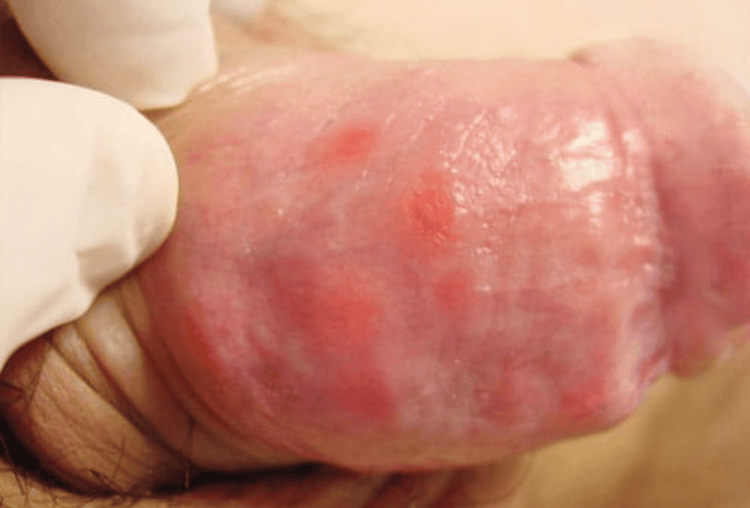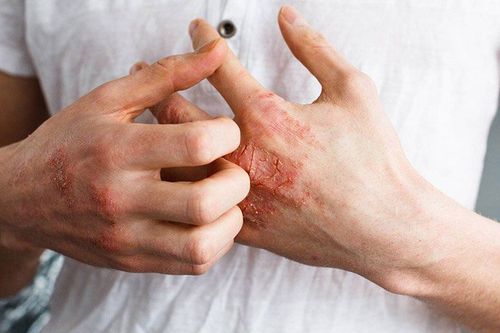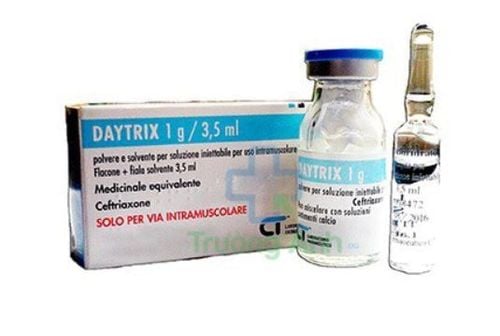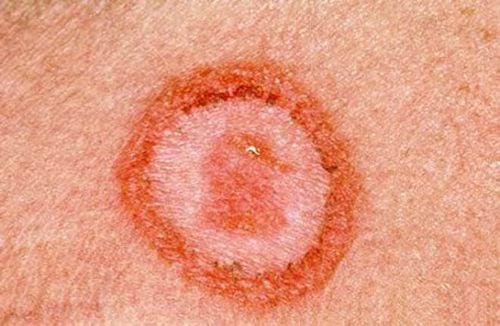This is an automatically translated article.
Syphilis is one of the sexually transmitted diseases caused by the spirochete Treponema pallidum, manifested by infectious lesions in the genital organs when in contact with skin lesions or from mother to fetus. intrauterine, through transfusion of blood products.
1. What is early syphilis?
Syphilis is an infectious venereal disease caused by the spirochete Treponema pallidum. The disease is transmitted through sexual contact with infected lesions, from mother to fetus in utero, through blood transfusion and sometimes through secretions of skin lesions.
The natural progression of syphilis, if left untreated, progresses through 4 stages: primary, secondary, latent and chronic. Each stage has different lesion morphology and different disease manifestations on organ systems.
The causative agent of T. pallidum is a thin, spiral-shaped bacterium that is 6-15 micrometers long while only 0.25 micrometers in diameter. Because of its small size, it becomes invisible on light-field microscopes; therefore, the presence of this germ can only be determined by its distinctive undulating movements on a dark field microscope. Poor independent survival, T. pallidum can only survive for a short time outside the body; therefore, transmission almost always requires direct contact with an infected lesion.
In the stages of syphilis, primary is the first stage, when the body has recently become infected with the bacteria through direct contact with infected lesions (most common) or through blood transfusion (if blood has been collected while syphilis is in its very early stages) or is transmitted from mother to fetus.

Giang mai lây truyền từ mẹ sang thai nhi
Immediately after infection with the germ of early syphilis, T pallidum rapidly penetrates intact mucous membranes or microscopic abrasions and, within hours, enters the lymph and blood to form systemic infection. The incubation period for syphilis from exposure to progression of primary lesions is on average 3 weeks but can range from 10 to 90 days.
When exposed to syphilis bacteria, the immune system will produce a slow-type hypersensitivity reaction to T pallidum. This response by sensitive T lymphocytes and macrophages leads to ulceration and necrosis of the lesion. The T pallidum antigen stimulates the production of antibodies but immunity to syphilis is incomplete. In particular, the host cell's immune response can prevent lesion formation but is not sufficient to clear the organism from the body.
Early syphilis is characterized by the development of dense lesions, called “sang” (translated from “chancre”), painless, occurring at the site of transmission after time incubation is 3 to 6 weeks. These lesions are highly infectious. With or without treatment, chancres heal within 3 to 12 weeks and the degree of scarring is significant.
If left unchecked, stage 1 syphilis will progress to a second stage about 4-10 weeks after the appearance of the primary lesion. By this time, the spirochetes have multiplied and spread throughout the body. Lesions are now no longer merely chancres located in the genital organs, but cause the patient to feel fatigue, discomfort, fever, muscle pain, joint pain, lymphadenopathy and rash.
2. What are the early symptoms of syphilis?
By looking at the lesions on the skin, doctors must always doubt whether a diagnosis of syphilis is possible. This is because the symptoms of syphilis, especially early syphilis, are nonspecific and can resemble many other diseases. Accordingly, it is necessary to pay attention to the risk factors as well as the close history to the time course of disease onset. These factors include unsafe sex practices, having a large number of sexual partners, not using condoms, a history of STIs or intravenous drug use, and have a history of exposure to blood products.
Early-stage syphilis usually manifests itself within 10 to 90 days of being exposed to an infected person. Predominantly manifestations are located on the penis in men and on the vulva or cervix in women. Of syphilis in men and women, about 10% of cases have syphilis lesions found on the anus, fingers, pharynx, tongue, nipples, or other body sites.

Giang mai ở nam giới
Lesions, called “syphilis chancres” usually begin to form as solitary red papules that are large, firm, and can be up to several centimeters in diameter. Erosion to create an intrapapullary ulcer with raised edges around a central ulcer. After that, the lesion usually heals within 4 to 8 weeks with or without treatment.
The examination is mainly to characterize the skin lesions, to determine whether syphilis is present. At the same time, the examination of other organs of the body is also to determine the possibility that early stage syphilis has progressed to the next stages.
3. How to prevent syphilis?
The main principles for the treatment of syphilis need to be ensured. The main goal of prevention is to limit the spread of syphilis. This requires all adults to master safe sex practices, most importantly the use of condoms.
At the same time, when sick, it is necessary to notify and encourage treatment for sexual partners. It is necessary to adhere to the full number of days of taking the drug, to limit sex when the treatment regimen has not been completed or when the lesion caused by syphilis has not yet healed to minimize the possibility of infection.
In short, syphilis is a "classic" venereal disease. The disease is still capable of definitive treatment if syphilis in the early stages. However, the disease has a very high risk of recurrence; Failure to comply can lead to more advanced stages and complications. Accordingly, each individual needs to be examined early when there are abnormal signs and treated, in order to ensure their own health as well as those around them.
Vinmec International General Hospital offers a Package of Examination and Screening for social diseases to help customers detect diseases early and have effective treatment and prevent dangerous complications. The screening package for social diseases at Vinmec is for all ages, both men and women.
Please dial HOTLINE for more information or register for an appointment HERE. Download MyVinmec app to make appointments faster and to manage your bookings easily.













